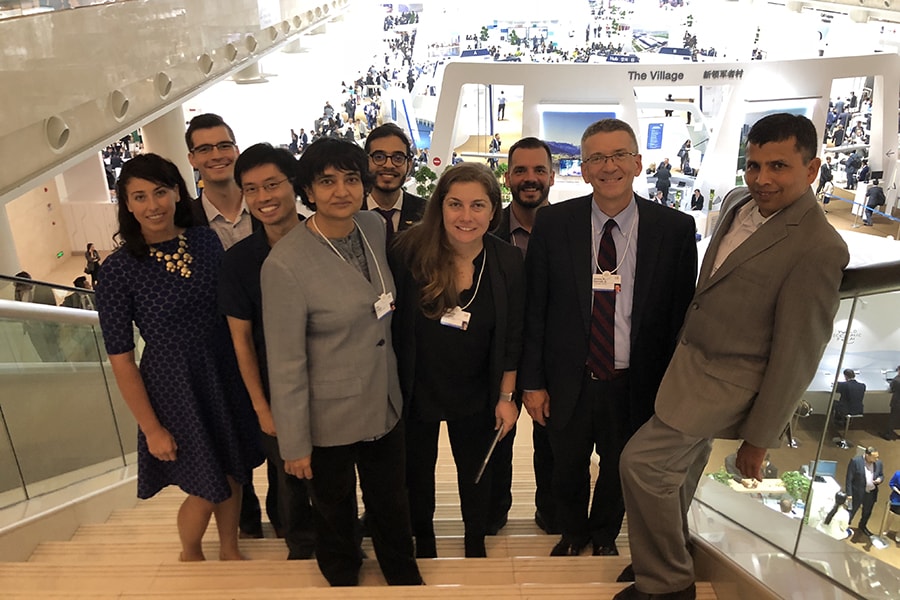Opportunity To Create Social Good Drives Sargent
Randy Sargent doesn't just write code for fun, or to impress his peers. He does it to make the world a better place.
A researcher at Carnegie Mellon University's CREATE Lab, Sargent's work is focused intently on social impact. One of the ways he's seeing broad social impact is through the lab's EarthTime tool — a website that enables users to visualize the cumulative effects of a range of influences globally or locally.
Helping illuminate issues such as climate change, air pollution, trade, deforestation, immigration and economic inequality, EarthTime has become a sought-after feature of the annual World Economic Forum in Davos, Switzerland.
Carnegie Mellon's Randy Sargent gives a demonstration about the growth of cities in the United States and China using EarthTime, a visualization tool that allows users to see changes over time.
Sargent hasn't always devoted his intellect to societal good. As a college student at MIT, he said his peer group measured their success by whether they impressed one another.
"It had nothing to do with social impact but had everything to do with how clever something was, or how impossible was the accomplishment," Sargent said.
While running a startup robotics company in Seattle in the mid-1990s, his robots were pitted against migrant farm workers in a blueberry picking exercise.
"That was a real wake-up for me because I just knew going into this that it was a job that no one wanted to do," he said. "But what I should have known was that it was a job that I didn't want to do. I went in with a real stereotype of what that job was and walked away from that not believing it was making the world better. It took a few things like that to hit me on the head."
Concerns over job displacement, as well as the adaptation of some of his robots for military applications left him disillusioned. So, by the time he moved to Pittsburgh and CMU in 2009, Sargent was looking for ways to make a difference — both inside and outside of the lab.
One CREATE Lab project Sargent continues to be particularly proud of is helping Pittsburgh residents in the neighborhoods downwind of Neville Island prove that area industries were polluting their air.
"They believed they knew where the air pollution was coming from — local industry," he said. "But they couldn't get anyone to listen to them. We helped them record the smells and showed that it wasn't just one person on one block [complaining], but that there was a pattern to it."
In addition to his work with EarthTime, Sargent runs afterschool programs near CMU's main campus, which he credits to adults who cultivated his childhood interest in science.
"I've been writing software since I was 10 years old," he said of his upbringing in a small Texas town outside of Dallas. "I was in the sixth grade, but the high school physics teacher had a teletype computer and let me spend an hour each day after school working on it. And that was just magic for me."
Carnegie Mellon University is committed to educating, empowering and aligning its community around the world to address the Sustainable Development Goals, also known as the Global Goals, which aim to create a more peaceful, prosperous planet with just and inclusive societies. Recognizing the critical contributions that universities are making through education, research and practice, CMU publicly committed to undertaking a Voluntary University Review of the Global Goals. The 17 Global Goals cover wide-ranging issues, including reducing violence, ending extreme poverty, promoting equitable education, fighting inequality and injustice, advancing economic growth and decent work, and preventing the harmful effects of climate change by 2030.
The preceding story demonstrates CMU's work toward attaining Global Goal 16.
